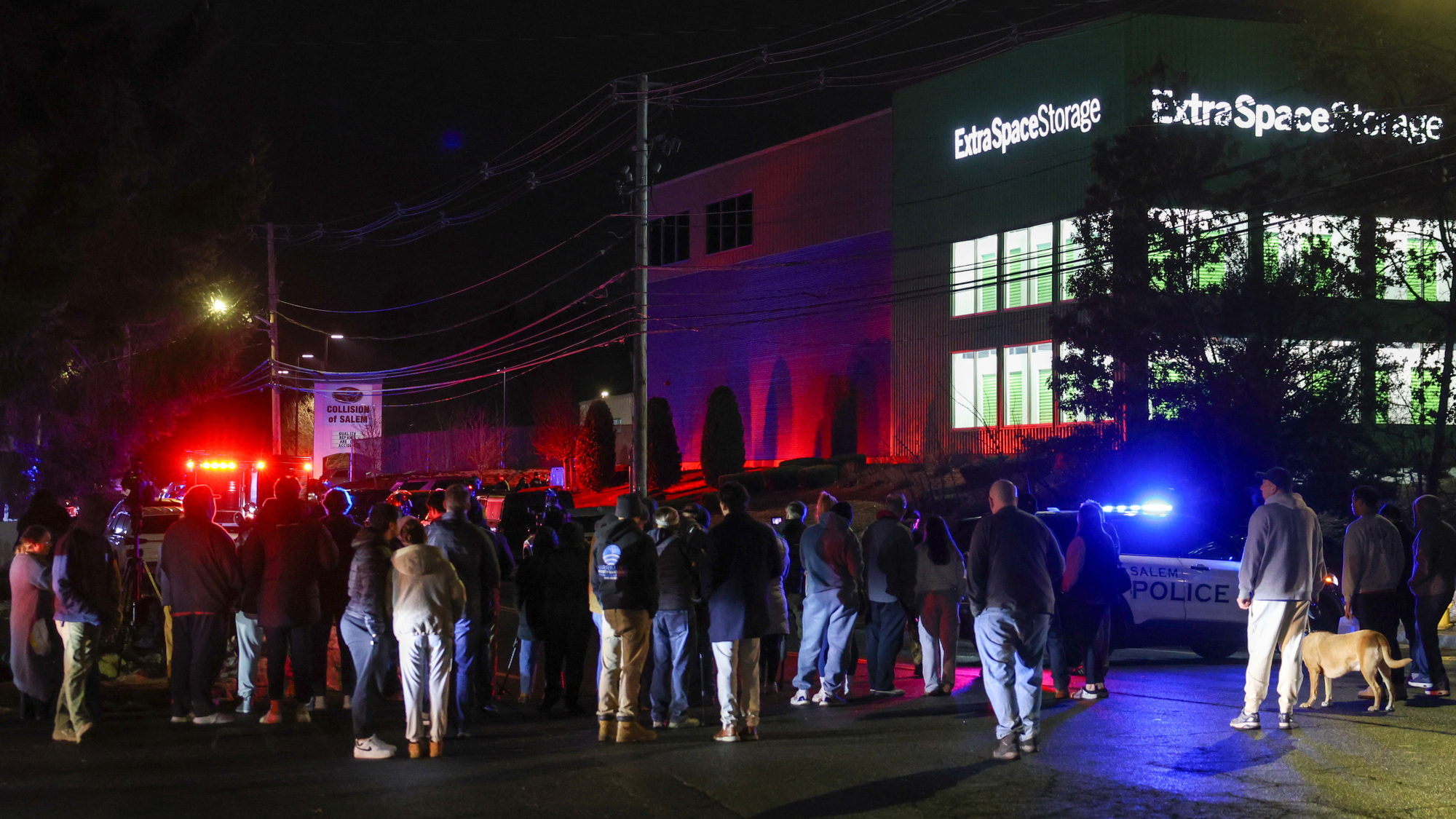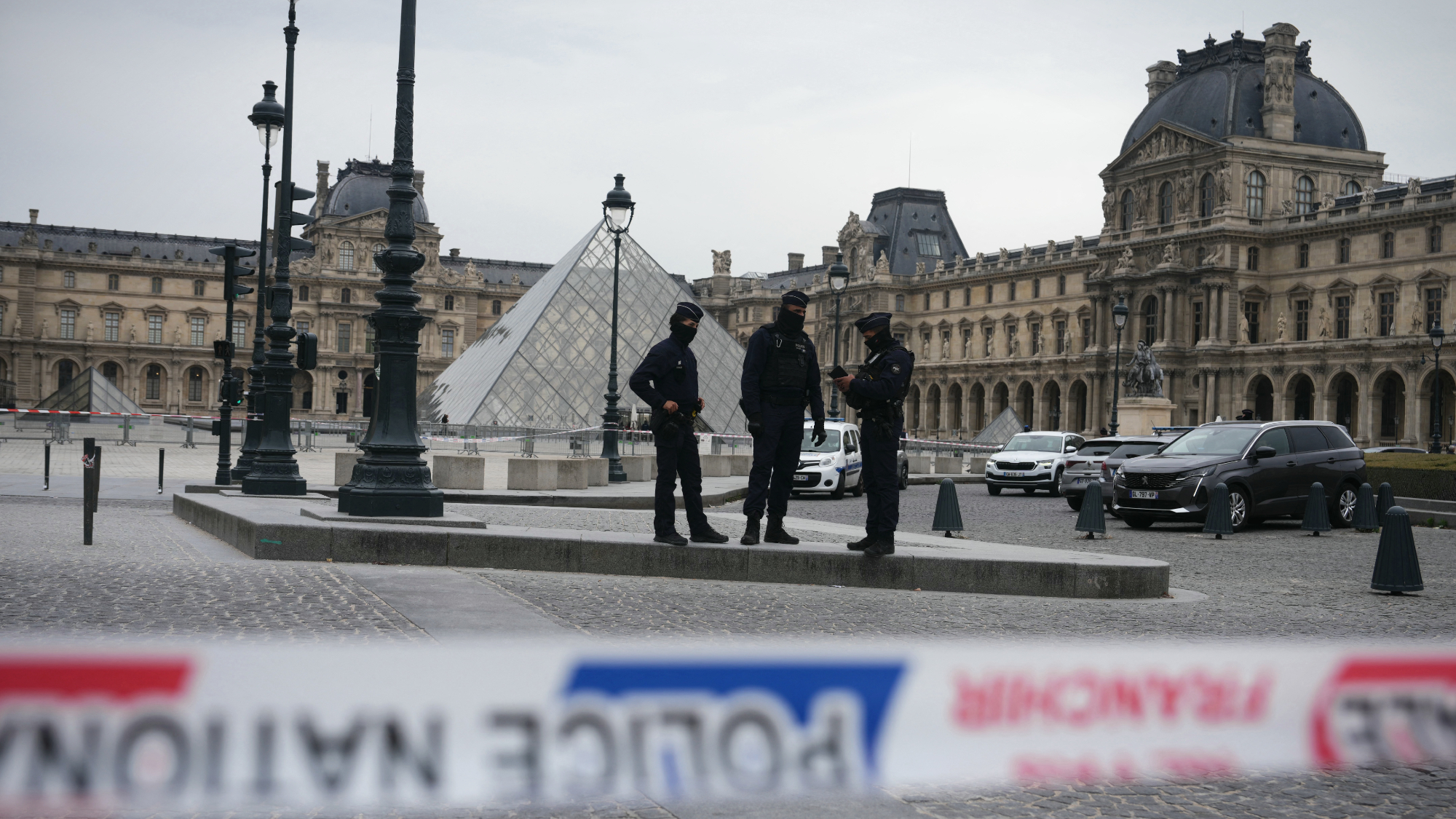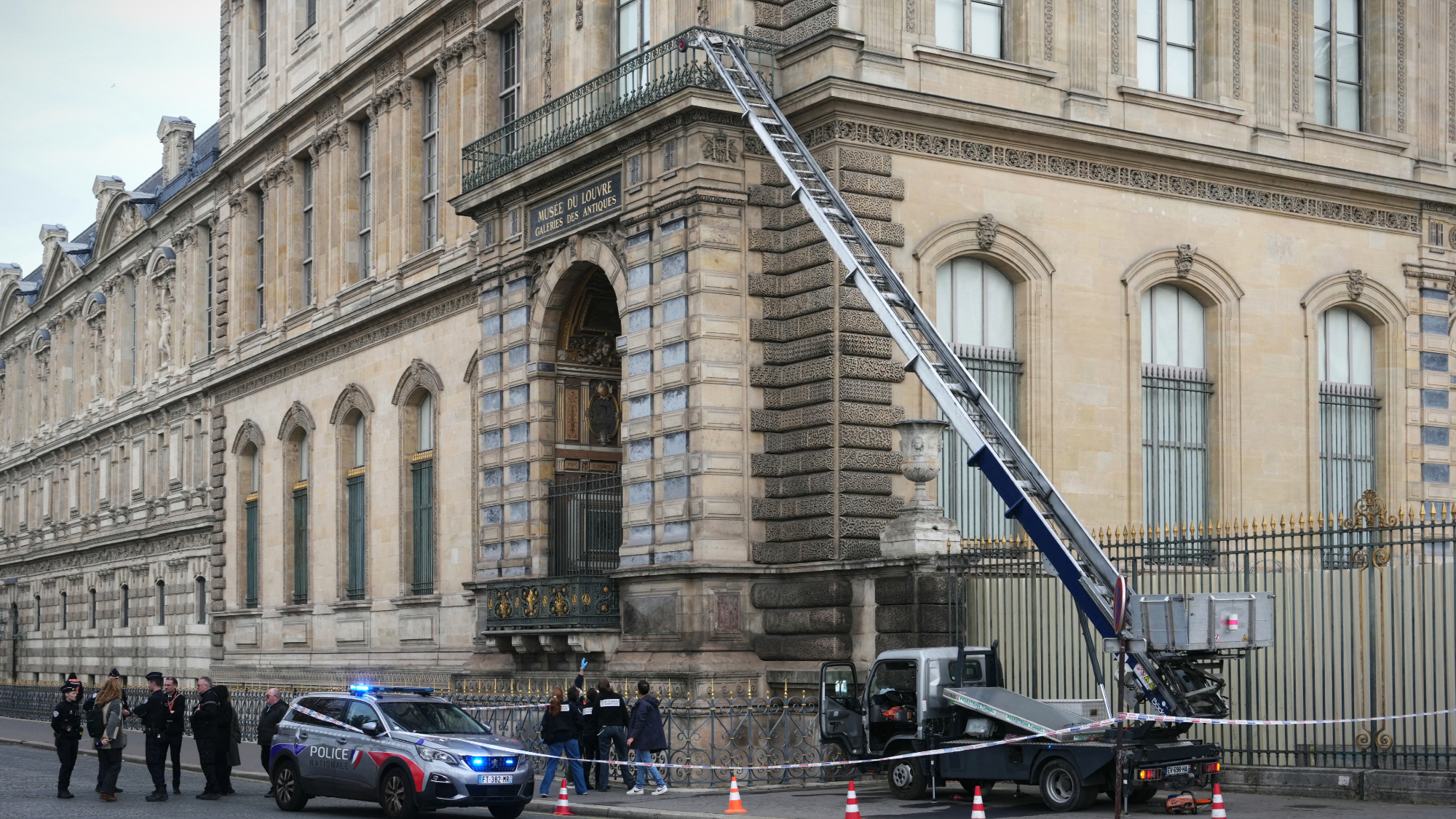Oath Keepers planned to 'rapidly transport firearms' to Capitol from D.C. suburbs on Jan. 6, indictment alleges

A free daily email with the biggest news stories of the day – and the best features from TheWeek.com
You are now subscribed
Your newsletter sign-up was successful
The Justice Department's seditious conspiracy charges against 11 members of the far-right Oath Keepers militia group are the most serious yet in its year-long investigation of the Jan. 6 attack on the U.S. Capitol, and the indictment released Thursday spells out a more elaborate and violent "plot to oppose by force the 2020 lawful transfer of presidential power," including by "breaching and attempting to take control of the Capitol."

Nine of the Oath Keepers had already been charged with lesser crimes. But Justice Department is now formally indicting Oath Keepers leader and founder Stewart Rhodes and member Edward Vallejo, accused of organizing the group's "quick reaction forces." The FBI arrested Stewart, 56, at his home in Texas and Vallejo, 63, in Phoenix, Arizona, on Thursday. Rhodes planned and coordinated events from just outside the Capitol, the indictment alleges, citing encrypted Signal chats federal investigators were able to recover.
The indictment says the Oath Keepers who breached the Capitol formed two teams, or "stacks," one of which confronted police officers inside the Capitol Rotunda while the other split into two, one group headed toward the House to find Speaker Nancy Pelosi (D-Calif.) and the other headed to the Senate.
The Week
Escape your echo chamber. Get the facts behind the news, plus analysis from multiple perspectives.

Sign up for The Week's Free Newsletters
From our morning news briefing to a weekly Good News Newsletter, get the best of The Week delivered directly to your inbox.
From our morning news briefing to a weekly Good News Newsletter, get the best of The Week delivered directly to your inbox.
The Oath Keepers at the Capitol did not bring firearms, but "others remained stationed just outside of the city in QRF teams," the indictment charges. "The QRF teams were prepared to rapidly transport firearms and other weapons into Washington, D.C., in support of operations aimed at using force to stop the lawful transfer of presidential power." (Marcy Wheeler has details of previously disclosed Oath Keeper discussions on the QRFs and the logistics of getting the weapons to the Capitol from a Comfort Inn in nearby Arlington, Virginia.)
And Stewart did not give up on the idea of using violence to keep former President Donald Trump in office even after the Capitol riot was put down, the indictment alleges.
Stewart, a former Army paratrooper and disbarred Yale Law graduate, has maintained over the last year that he did not break any laws. He acknowledged the QRF weapons caches in an interview with The Washington Post last February, but said they were to be used "only if the president calls us up."
Sedition charges, rare and hard to win, bring prison sentences of 20 years. The last successful sedition prosecution was against "Blind Sheik" Omar Abdel Rahman and nine others 26 years ago.
A free daily email with the biggest news stories of the day – and the best features from TheWeek.com
Peter has worked as a news and culture writer and editor at The Week since the site's launch in 2008. He covers politics, world affairs, religion and cultural currents. His journalism career began as a copy editor at a financial newswire and has included editorial positions at The New York Times Magazine, Facts on File, and Oregon State University.
-
 The Olympic timekeepers keeping the Games on track
The Olympic timekeepers keeping the Games on trackUnder the Radar Swiss watchmaking giant Omega has been at the finish line of every Olympic Games for nearly 100 years
-
 Will increasing tensions with Iran boil over into war?
Will increasing tensions with Iran boil over into war?Today’s Big Question President Donald Trump has recently been threatening the country
-
 Corruption: The spy sheikh and the president
Corruption: The spy sheikh and the presidentFeature Trump is at the center of another scandal
-
 Maxwell pleads 5th, offers Epstein answers for pardon
Maxwell pleads 5th, offers Epstein answers for pardonSpeed Read She offered to talk only if she first received a pardon from President Donald Trump
-
 Hong Kong jails democracy advocate Jimmy Lai
Hong Kong jails democracy advocate Jimmy LaiSpeed Read The former media tycoon was sentenced to 20 years in prison
-
 Ex-Illinois deputy gets 20 years for Massey murder
Ex-Illinois deputy gets 20 years for Massey murderSpeed Read Sean Grayson was sentenced for the 2024 killing of Sonya Massey
-
 Sole suspect in Brown, MIT shootings found dead
Sole suspect in Brown, MIT shootings found deadSpeed Read The mass shooting suspect, a former Brown grad student, died of self-inflicted gunshot wounds
-
 France makes first arrests in Louvre jewels heist
France makes first arrests in Louvre jewels heistSpeed Read Two suspects were arrested in connection with the daytime theft of royal jewels from the museum
-
 Trump pardons crypto titan who enriched family
Trump pardons crypto titan who enriched familySpeed Read Binance founder Changpeng Zhao pleaded guilty in 2023 to enabling money laundering while CEO of the cryptocurrency exchange
-
 Thieves nab French crown jewels from Louvre
Thieves nab French crown jewels from LouvreSpeed Read A gang of thieves stole 19th century royal jewels from the Paris museum’s Galerie d’Apollon
-
 Arsonist who attacked Shapiro gets 25-50 years
Arsonist who attacked Shapiro gets 25-50 yearsSpeed Read Cody Balmer broke into the Pennsylvania governor’s mansion and tried to burn it down
